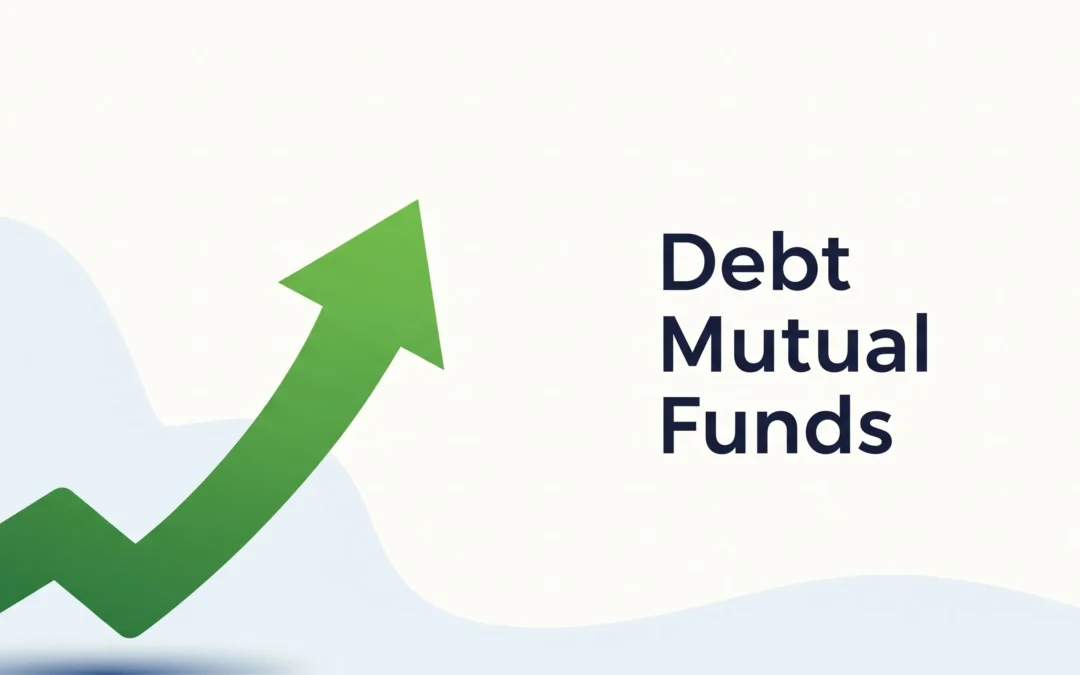With the vast spread of investing options available, it becomes difficult to choose one that is suitable for the individual, especially for beginners. Debt mutual funds are a popular choice among investors as they generate good returns and can be great to balance the overall portfolio. It is a low-risk and consistent income-generating instrument. There are several other pros and cons attached to it, which are essential to know for making an informed decision.
Let us get into the details of debt mutual funds and should an investor should invest in it or not.
Understanding Debt Mutual Funds
Debt mutual funds are responsible for collecting the investor’s money and allocating it to fixed-income securities such as government bonds, corporate bonds, treasury bills, and other money market instruments. These investments aim to provide relatively stable returns over time, though the returns are not guaranteed.
Conservative individuals or those with low risk tolerance may invest in them. Other benefits of these schemes include higher liquidity compared to traditional fixed deposits and favorable tax treatment, especially for long-term holdings.
Let’s now look into the type of debt mutual funds available.
Types of Debt Funds:
| Debt Fund Type | Investment Horizon | Key Instruments | Risk Level |
| Liquid Funds | Up to 3 months | Treasury Bills, Commercial Papers | Low |
| Short Duration Funds | 1–3 years | Corporate Bonds, Government Securities(G-Secs) | Moderate |
| Gilt Funds | 3–5 years | Government Securities | Low to Moderate |
| Credit Risk Funds | 3+ years | Lower-rated Corporate Bonds | High |
| Dynamic Bond Funds | Flexible | A mix of long and short-term instruments | Moderate |
Why Would You Want to Invest in Debt Funds?
Debt mutual funds serve a broad range of financial objectives and risk tolerances, so they are not just for one kind of investor. Here are some reasons why debt funds might be a wise choice, regardless of whether you’re balancing your equity-heavy portfolio or building your emergency corpus:
1. Consistent and Reliable Returns
- Returns from debt funds are typically more consistent than those from equity funds.
- It is appropriate for people who have a low to moderate tolerance for risk.
2. Liquidity
- Easy redemption is provided by open-ended debt funds.
- Liquid funds are perfect for emergency funds because they can be withdrawn within a day.
3. The process of diversification
- Spreading the risk is facilitated by investing in a variety of debt instruments.
- An excellent option for diversifying a portfolio.
For whom are debt mutual funds appropriate?
They fit particular investor profiles and financial needs, which are presented in the following table:
| Investor Profile | Why Debt Funds? |
| Salaried Individuals | Perfect for setting up a short-term savings or emergency fund. |
| Retired Individuals | Produces consistent revenue while lowering risk exposure. |
| First-time Investors | Acts as a base for investing in mutual funds without taking on the risks of the stock market. |
| Risk-averse Investors | Generates modest returns while protecting capital. |
| Goal-Based Investors | Suitable for achieving short to medium-term goals like buying a car or funding education with controlled risk. |
Bottomline
The conclusion can be drawn that a portfolio should be a mix of various instruments to hedge against loss. Debt mutual funds ensure that the investor is getting consistent returns even when the market is fluctuating.
New investors who are less experienced may opt for debt mutual funds to minimize the risk of loss. It also gives investors the freedom to match their investments with particular financial objectives by choosing such funds. It is often considered a good option for retirees.
Investors can use debt mutual funds to attain both short-term and long-term financial stability by making well-informed decisions and routinely assessing fund performance.
Written by: Tanya Kumari


